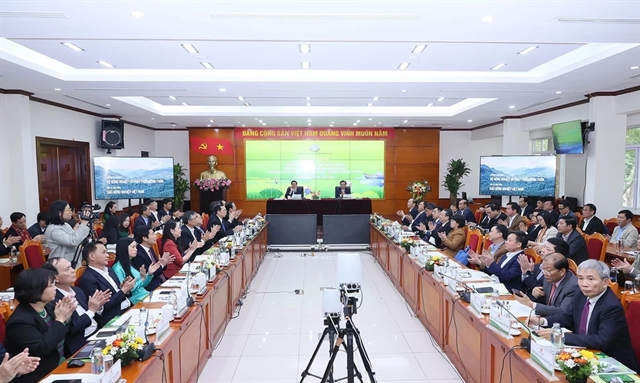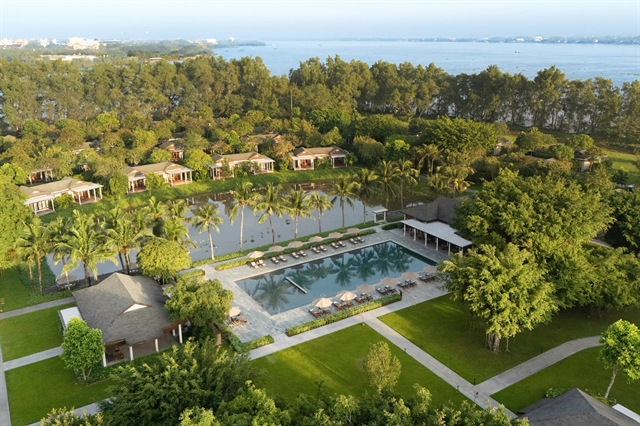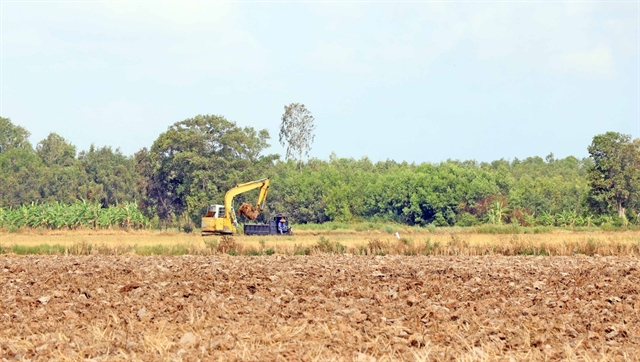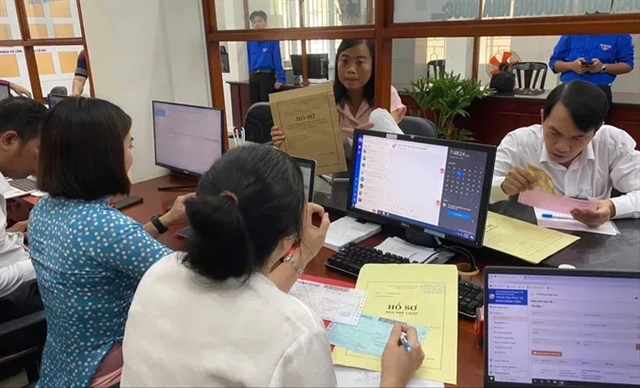 Society
Society

 |
| Caption: Farmers prepare for the ongoing summer- autumn rice crop in Cà Mau Province. —VNA/VNS Photo Huỳnh Anh |
CÀ MAU — The southernmost province of Cà Mau is taking urgent measures to mitigate the effects of possible inclement weather on its key crops and aquatic species during the ongoing summer-autumn season.
Its summer-autumn rice is expected to suffer from unfavourable weather this year, including prolonged heat, according to the province Centre for Hydro-Meteorology Forecasting.
The low rainfall so far this rainy season in alum-affected areas means the alum is not washed away from rice fields before the summer-autumn rice crop is sown.
May-June is the transition period between the dry and rainy seasons.
But temperatures now are higher than normal, and this will affect the growth of seedlings in dry fields, the centre said.
There would be strong winds and heavy rains in July and August, which would damage the rice crop when it ripens, it said.
The Cửu Long (Mekong) Delta province plans to sow 35,244ha of summer-autumn rice.
Trần Chí Nguyện of the province Agriculture Extension Centre, said farmers should prepare land well and take measures to improve the soil and reduce the alum.
“Farmers should co-operate with their district agricultural officials for instructions in nature-based farming.”
The province People’s Committee has ordered the Department of Agriculture and Rural Development and other relevant agencies to strengthen measures to prevent the spread of diseases among aquatic creatures, especially shrimps.
The country’s largest shrimp producing province has 18,661ha of farms affected by diseases this year, and a mortality rate of 35-75 per cent, according to the department.
Its Agriculture Extension Centre has told farmers to keep a close eye on weather forecasts during the transition period to promptly take measures to safeguard their crops.
Shrimp food should be checked for quality to ensure the safety of the crustaceans, it said.
Farmers should dissolve lime, nutrient minerals and bioproducts in water and add it to shrimp ponds when there are rains, it said.
When the ponds have abnormal water or other conditions, farmers should inform agricultural officials for taking prompt remedial measures, it said.
The province is expected to harvest 205,300 tonnes of aquatic animals in the first half of the year, including 121,200 tonnes of shrimps, according to the department. — VNS




